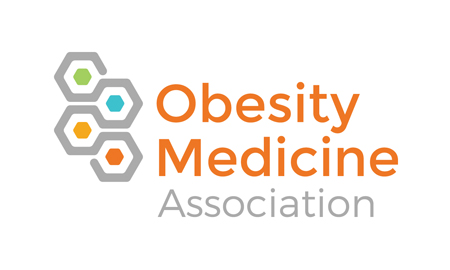Obesity and Nutrition: How Bariatric Surgeons Can Advance Outcomes
 by Sandra Christensen, MSN, ARNP, FOMA
by Sandra Christensen, MSN, ARNP, FOMA
Ms. Christensen is a board-certified nurse practitioner and the owner of Integrative Medical Weight Management in Seattle, Washington.
Funding: No funding was provided.
Disclosures: The author has no conflicts of interest relevant to the content of this article.
Bariatric Times. 2021;18(3):20
National Nutrition Month reminds us of the important role bariatric surgeons can play in stemming the obesity epidemic.1 As bariatric healthcare providers, we understand the complexities of an obesity diagnosis better than anyone. Beyond the chronic condition’s numerous comorbidities, such as Type 2 diabetes, hypertension, and stroke, we also understand the intricate web of genetic and environmental factors that contribute to the development and persistence of obesity.2
We’re also aware of the myriad opportunities we have to improve the health of people with obesity. Nutrition counseling is one of the interventions that bariatric surgeons can utilize to improve outcomes.
Clinicians might struggle with how to navigate conversations with their patients about the behavioral determinants that influence obesity and health. These conversations can be uncomfortable due to the stigma that surrounds obesity. As a result, their patients miss out on the opportunity to receive personalized medical advice that will improve obesity and help them develop the health habits that will support their health, such as nutrition, physical activity, sleep, and stress management.3–5
Read on to find out how you can seize the opportunity to deliver more effective treatment by utilizing nutrition counseling during this month and beyond:
Understand the myths. Our understanding about the science of obesity has evolved beyond the notion of “eating less and moving more.” We know more about the unique factors that influence overall health, including nutrition and physical activity. But we also know that these aren’t the only factors driving health outcomes. Up-to-date knowledge enables us to do better—and that applies to clinicians just as much as patients. Consider boosting your competency in this area with targeted professional development that can teach you how to develop care plans with the most current science and best practices on nutrition and obesity.
Share your knowledge. Deepening your familiarity of the ways in which nutrition counseling can be utilized to help your patients is a great start. Sharing what you’ve learned with your patients and helping them understand the impact better nutrition can have on their long-term health can make a significant impact on their outcomes.
Don’t avoid the subject. Obesity is a serious condition—bariatric surgeons know that better than most. But avoiding important conversations because it makes you feel uncomfortable disempowers your patients. And it can create additional barriers for them to discover lasting health outcomes.
Teach helpful tips. One benefit of nutritional counseling is that it provides patients with individualized strategies that are tailored to their unique situation. For example, patients often think they should be able to naturally resist temptation, but counseling provides them with the insight that avoiding temptation is the more effective strategy.
Be an influencer. There are more weight loss products on the market than ever, making it all the more important that bariatric surgeons provide recommended tools and resources that have the backing of their clinician. Start thinking of yourself as one of the most important influencers in your patients’ lives—because it saves lives.
Nutritional counseling is just one example of the kind of easy and effective intervention that can make a significant difference in health outcomes for your patients. Becoming a member of the Obesity Medicine Association (OMA) is another—members gain access to a trove of resources designed to educate and empower healthcare professionals with advanced obesity medicine knowledge. Together, we can become better providers for patients with obesity.
To learn more about OMA or to become a member, visit: www.obesitymedicine.org.
References
- Obesity and Overweight. Centers for Disease Control. https://www.cdc.gov/nchs/fastats/obesity-overweight.htm. Accessed 10 February 2021.
- A Look at Obesity Medicine in 2021. Bariatric Times. https://bariatrictimes.com/oma-obesity-medicine-in-2021/. Accessed 10 February 2021.
- Why We Need to Rethink Treating Obesity with Physical Activity. Medical Economics. https://www.medicaleconomics.com/view/why-we-need-to-rethink-treating-obesity-with-physical-activity. Accessed 10 February 2021.
- Stress Management Can Help Obesity Patients Manage Depression During COVID-19—Here’s How. Medical Economics. https://bariatrictimes.com/stress-management-bariatric-depression/. Accessed 10 February 2021.
- The Best Diets for Healthier Aging. Bariatric Times. https://bariatrictimes.com/diets-healthier-aging-bariatric-surgery/. Accessed 10 February 2021.
Category: Medical Methods in Obesity Treatment, Past Articles




